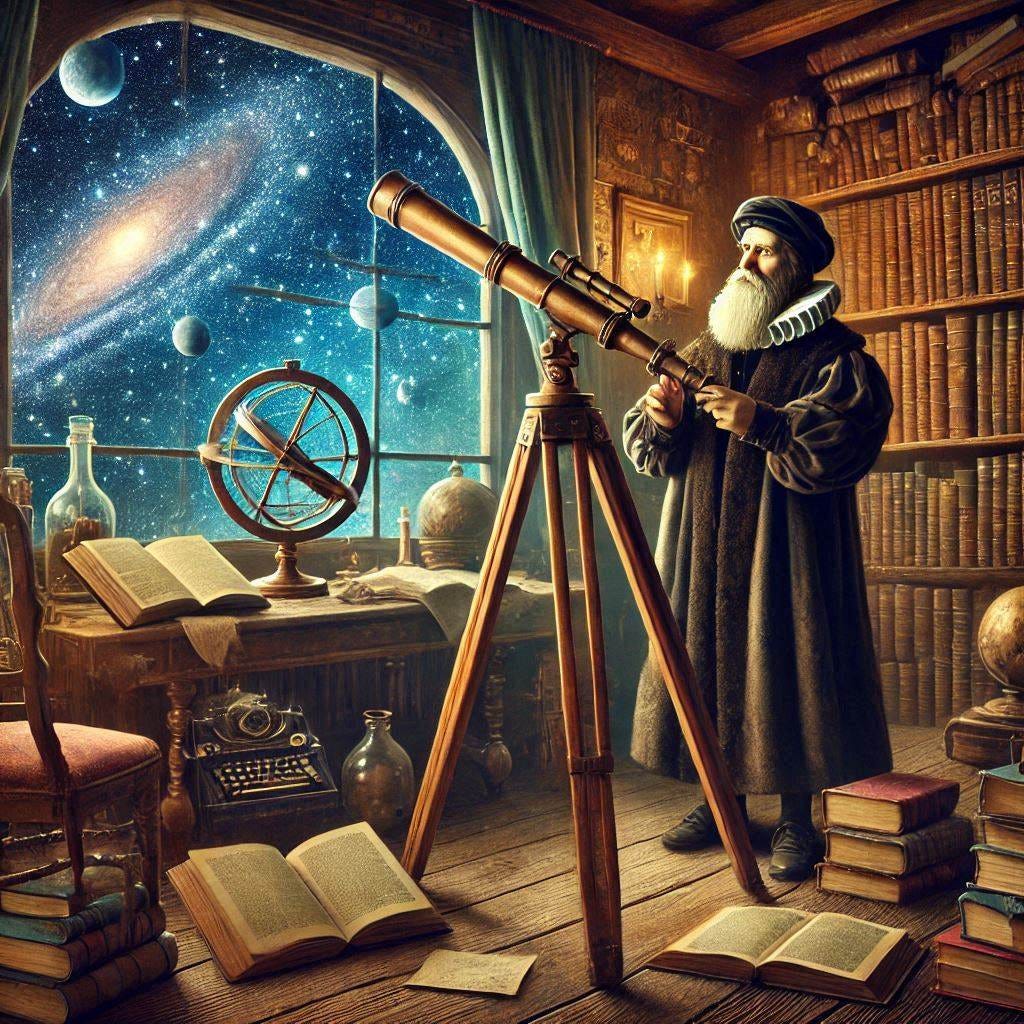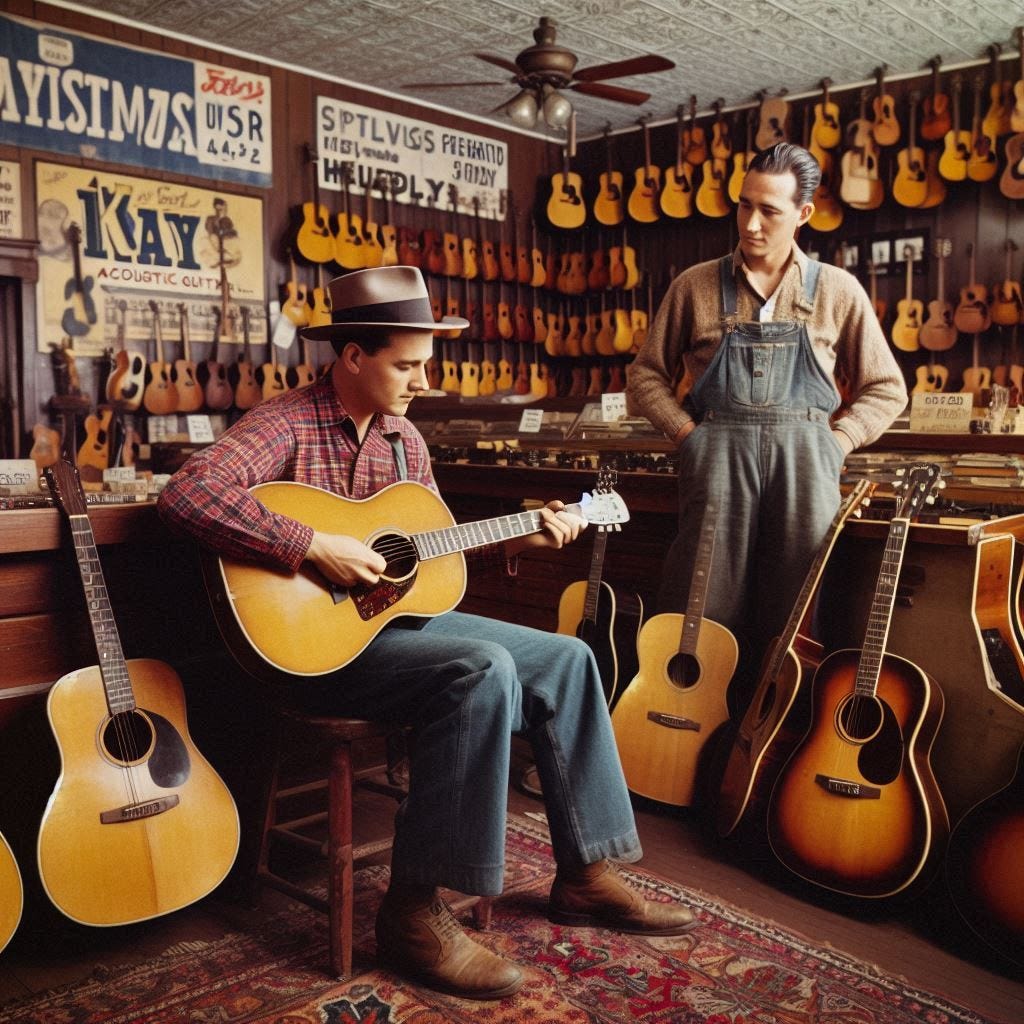The Mysteries of History (January 8 Edition)
Galileo's Rejected Observation, The Superfluous Battle of New Orleans, and Elvis' Kay
1642 — Galileo Dies
Galileo Galilei was 77 when he died on this date in 1642. The astronomer and physicist known by his first name was the first person to gaze into the sky using a telescope, an endeavor that allowed him to see the rings of Saturn and the moons of Jupiter, among other things.
Agreeing with Copernicus before him (1473-1543), Galileo confirmed that the earth revolved around the sun, rather than vice versa. For this, he was branded a heretic by the catholic church (although Galileo’s assertion did not contradict the Bible, merely church dogma/opinion). Galileo spent the last nine years of his life under house arrest due to making known his to-some-people-unpopular scientific conclusion.
Questions: Where did Galileo live? Who invented the telescope? Why did the catholic church think it was necessary to think that the sun revolved around the earth? Did Copernicus also deal with reprisals due to his findings? In what other ways has emotion clouded logic throughout history? Does it still happen today?1815 — Battle of New Orleans
Note: Oddly enough, attempts to get Bing Image Creator to generate an image of the Battle of New Orleans — using a variety of prompts to coax it into acquiescing to do so — all failed. So, I used a public domain image from wikimedia commons.Although the War of 1812 had already ended, the American forces led by Andrew Jackson and their British antagonists near New Orleans had not heard about it in those pre-Telegraph, pre-Telephone days.
The surprise attack by the British was foiled by pirate Jean Lafitte, who warned the Americans in time for them to be prepared for the onslaught. Although the Americans were outnumbered by a ratio of 5:3 (7,500 against 4,500), the British suffered a loss of 2,000 killed, wounded, or missing (presumably absquatulated) to 21 American casualties, a ratio of almost 100:1. Many of the Americans were “sharpshooters” (expert marksmen) from Kentucky and Tennessee.
Country crooner/whooper Johnny Horton later lionized Jackson and the Americans with a song that bore the same name as this event.
Questions: How long had the war been officially over when the Battle of New Orleans was fought? Did the missing Britishers ever turn up anywhere (were they identified as having been at the battle, but had suddenly "remembered an engagement elsewhere")? What was the intent on the part of the British in attacking New Orleans, in particular? What led to the Treaty of Ghent (the “peace treaty” between the U.S. and Britain) being signed in late December 1814?1946 — Elvis Gets His First Guitar
Elvis (Presley, not Costello, who wasn’t born until eight years later) got his first guitar on this date in 1946, when he was eleven years old. His mother paid $7.75 (the equivalent of about $118 today) for the Kay acoustic six-string.
Questions: Where did Elvis live at this time of his life? What music did he listen to when he was young? What was his first hit song on the radio, and what year did it come out? Who wrote that first hit? Who were some of Elvis’ band members, and were they considered to be good musicians, or were they simply childhood friends of Elvis who were enthusiastic and “looked the part”?







